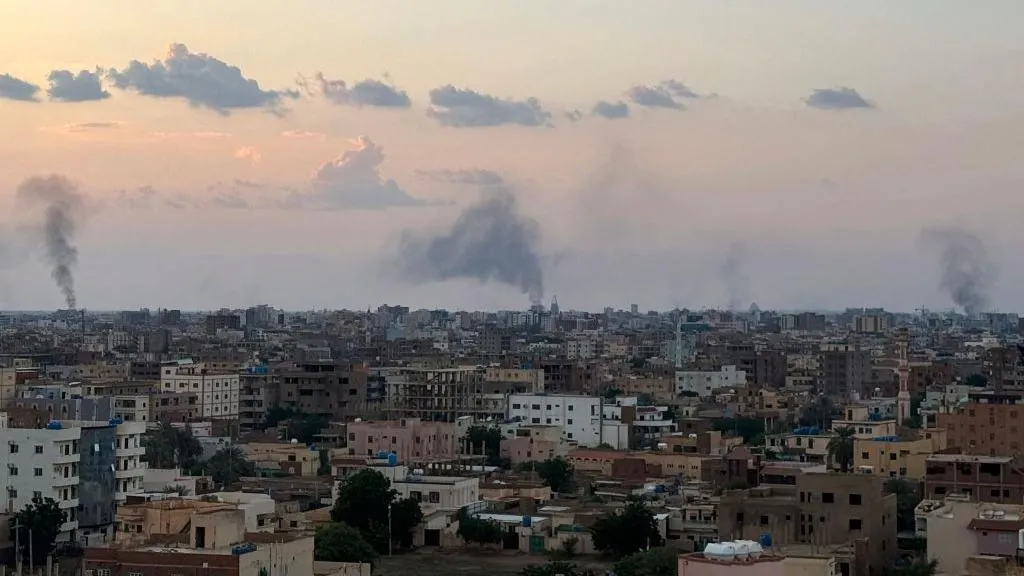Tragedy Strikes in Sudan: Airstrikes Target Market, Leaving Many Dead
3 min read
Fierce fighting has raged around Khartoum since Friday
Sudanese army airstrikes have tragically resulted in the deaths of at least 23 individuals and injured more than 40 others in southern Khartoum. The strikes occurred on Saturday and primarily targeted a central market and a nearby residential area, both located near the main camp occupied by the paramilitary Rapid Support Forces (RSF).
Among the victims were traders, shoppers, and local residents, all of whom were caught in the chaos of the airstrikes. The ongoing conflict between the RSF and the Sudanese military has escalated significantly over the past 18 months, claiming up to 150,000 lives and displacing roughly a fifth of Sudan’s population, according to United Nations estimates.
Emergency responders from the Nobel Prize-nominated organization Emergency Response Rooms reported that the wounded individuals are being treated in local hospitals. However, many of these facilities are currently overwhelmed by the influx of injured civilians, further complicating the humanitarian crisis unfolding in the capital.
The situation has intensified since Friday, with fierce fighting erupting around Khartoum, which is largely under the control of the RSF. The military has ramped up its airstrikes in the city’s central and southern regions, escalating tensions in an already volatile environment. Witnesses have reported that the army appears to be advancing toward Khartoum from Omdurman, a neighboring area where clashes erupted on Saturday.
The Sudanese government has recently brought allegations before the UN Security Council, claiming to possess new evidence that the United Arab Emirates is arming and supporting the RSF. This assertion has prompted calls for action against the Gulf state, which has consistently denied such accusations. Both the RSF and the Sudanese Armed Forces have faced accusations of committing various atrocities throughout the conflict.
The United Nations has issued stark warnings about the humanitarian implications of the ongoing violence. “Relentless hostilities across the country have brought misery to millions of civilians, triggering the world’s fastest-growing displacement crisis,” the organization stated last month. The situation in Sudan has deteriorated to such an extent that the UN now classifies it as “the world’s largest hunger crisis,” underscoring the dire conditions many civilians are facing.
 The recent airstrikes and the subsequent loss of life have reignited calls for international intervention and humanitarian aid. Activists and organizations working within Sudan have emphasized the urgent need for assistance to address the rising number of displaced individuals and the lack of basic necessities, including food, water, and medical care.
The recent airstrikes and the subsequent loss of life have reignited calls for international intervention and humanitarian aid. Activists and organizations working within Sudan have emphasized the urgent need for assistance to address the rising number of displaced individuals and the lack of basic necessities, including food, water, and medical care.
In addition to the immediate casualties from the airstrikes, the ongoing conflict has created a climate of fear and uncertainty for the people of Sudan. Many residents in Khartoum have expressed their frustration and despair over the escalating violence, feeling trapped in a cycle of conflict that shows little sign of abating.
As the international community watches closely, the situation in Sudan remains precarious. The ongoing fighting not only threatens the lives of those in immediate danger but also jeopardizes the stability of the region as a whole. Humanitarian organizations continue to advocate for peace and resolution, hoping to alleviate the suffering of millions affected by the conflict.
With the violence showing no signs of diminishing, the people of Sudan face a daunting future. The airstrikes that took place over the weekend are a grim reminder of the ongoing humanitarian crisis that demands urgent attention and action from both regional and international powers. The hope for peace in Sudan seems distant, but for the sake of its citizens, the global community must remain vigilant and committed to finding a resolution to this devastating conflict.






